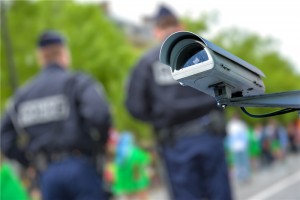The widespread use of facial recognition will obviously affect the rights of the fourth amendment and the activities protected by the first amendment, and will seriously affect people’s freedom of expression. If the law enforcement agencies input the photos of the crowd, security cameras and visual media into their followers database, anyone can enter the gray or black list database without their knowledge, even if they are not suspected of committing a crime or just appear in the wrong place at the wrong time, For example, engaging in “suspicious” activities such as public protests through private areas or in public places full of cameras. Given the past, there has been a history of abuse by law enforcement agencies of data collected based on people’s religious beliefs, race, ethnicity and political orientation. People worry that face recognition users will continue to break through the principle of fair use.
Like other biometric programs that collect, store, share and combine sensitive and unique data, face recognition technology poses a more serious threat to privacy and civil liberties. Our biometric technology is unique to each of us, cannot be changed, and is usually easy to collect and analyze. However, unlike other biometric technologies, face recognition brings the inherent risks of other biometric technologies to a new level, because it is much more difficult to prevent the collection of facial images. Every time we go out, our faces are exposed to the ubiquitous security cameras. Many of us share pictures of our faces on the Internet. At present, there are few effective measures to limit all or some people from collecting or reading them. Therefore, face recognition technology has the ability to capture and recognize images secretly, remotely and on a large scale. As a result, the photos that may eventually appear in the database include not only a person’s face, but also her interests and hobbies, as well as most of her activity tracks and content extracted by algorithms.
The cumulative database of face recognition and easily recognizable photos covers the rights and values of freedom of speech and freedom of association under the first amendment, especially because face recognition photos of crowd or political protest can be taken through public and semi public social media websites in public, online and without personal knowledge.
As we all know, law enforcement departments have used face recognition technology in political protests, including but not limited to. In the latest case, the social media monitoring company said: in the protest surrounding Freddie Gray’s death in police custody, the police department used comprehensive face recognition technology capabilities such as face recognition databases and social media photos to identify and arrest the protestors.
Such government supervision will have a real negative impact on the willingness of Americans to participate in public debates and interact with others whose values, religions, political views, etc. may be considered different from their own. For example, researchers have been studying the “spiral of silence” for a long time, that is, when individuals think that their views are different from those of most people, this effect will have a significant negative impact on individuals’ willingness to publicly disclose their political views.
There have been relevant research results, such as: the study of Facebook users, after people generally understand the government monitoring measures, the silence effect of different opinions on research participants: when participants realize that these views are beyond the normal, they are less likely to express negative views on government monitoring on Facebook.
Similarly, another religious study found that a study of Muslims in New York and New Jersey found that excessive police surveillance of Muslim communities had a significant negative impact on activities protected by the first amendment. Specifically, people are less willing to participate in mosques that they believe are under government surveillance, engage in religious activities in public places, and even wear or grow their hair in a way that may expose them to religious based surveillance. People are also less likely to come into contact with other people in the community, and they don’t know them because they worry that any of them may be government informants or radicals. Parents dissuade their children from participating in Muslim social, religious or political movements. Business owners have taken conscious steps to shut down all Jazeera in stores and silence political discussions, while activists have self censored comments on Facebook.
These examples show the real risk that the speech and activities protected by the first amendment will be subject to excessive government supervision, especially when the speech represents a few or disapproving views. Although it seems that we have not reached the stage of widely using face recognition to monitor the public, we are at a stage where the government is building a database to make such monitoring possible. We must now start meaningful inspections or legislation on the rational use of face recognition.
Post time: Jul-11-2021


